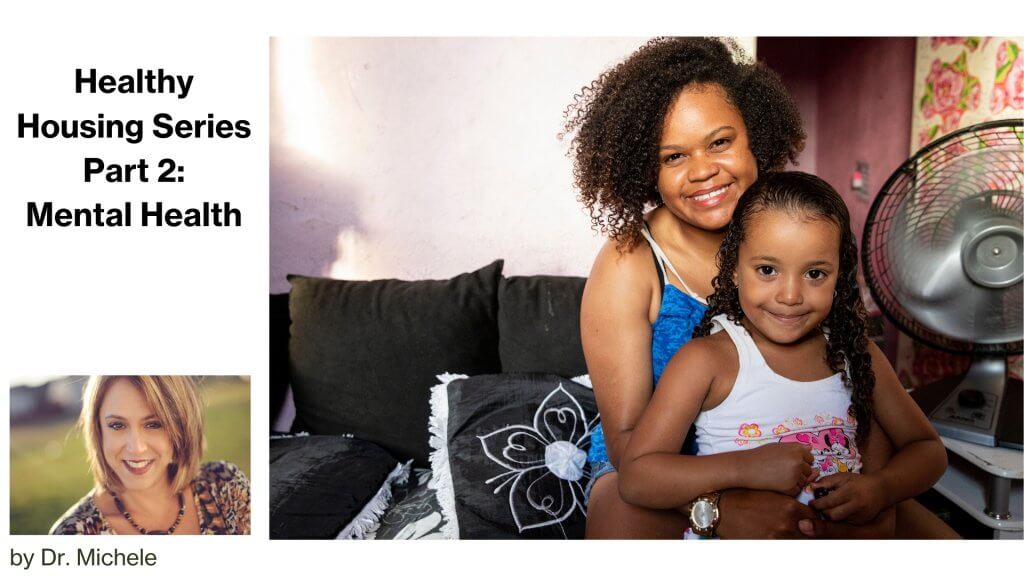Healthy Housing Series Part 2

The Impact of Housing on Mental Health
Inadequate housing can act as a barrier to mental health. But safe, decent, and affordable housing can remove barriers to opportunity and success, both mental and physical health; that might have been part of a family’s life for years, if not generations.
As a counselor for the last 22 years I have seen the effects the living environment has on the mental, emotional, and relational life of individuals and families. Having inadequate housing can cause depression, anxiety, and encourage poor methods of coping. It can affect how you see yourself, what you perceive as your value, and what you expect out of life; this can color and affect your personal identity. In turn, the opposite also proves to be true, a safe and secure home can provide a stable foundation for a healthy life where good habits and loving memories are created.
A home is more than just shelter from a storm, it is a place for personal growth. A comfortable home atmosphere produces a sense of safety, belonging, peace, and joy. It is an individual’s haven away from the world. A safe, stable, and affordable home provides a release from the anxiety of wondering if your needs will be met and instead fosters the opportunity for personal growth.

Let me give you a real life example. Angie (not her real name for privacy purposes) was a client of mine. She had been married for 10 years to a narcissistic, verbal and emotional abuser. She had two small children, a low-paying job, and felt crushed emotionally from years of abuse. As a counselor, I sought to help her restore her voice and identity. I planned on teaching her how to identify abusive patterns, set boundaries, and instead of reacting, respond with healthy thinking and life skills. I wanted her to obtain discernment skills for a better future.

This emotional journey would require Angie to learn how to re-frame faulty thoughts so that she could recast life patterns and have the ability to pass down healthy relationship skills to her children. It would require systematic change, one choice at a time, to produce health and wholeness for her entire family. But, how could any of that be obtained if we didn’t first address her immediate need for a safe place to live?

As a first step to starting this next chapter in her life, Angie and I worked together to find her a place she could call home. A place that was physically safe, devoid of toxins, or peeling paint. A place where her children could go outside without her being afraid for their safety. Once we found her a home that met her needs and provided a sense of security, she was able to put her effort into moving forward and healing mentally and emotionally from past wounds. Thanks to a safe place to call home, she was able to begin the journey into making a new life for her and her children.
About Dr. Michele
For over 22 years she has provided thousands of people with tools and skills to “Think, Choose, and Thrive.” She works in her local office but also serves clients all over the country via online platforms like Skype.
Contact her at www.DrMichele.org, or call (904) 730-0775.
See more from her click here https://www.youtube.com/user/drmichelefleming.

